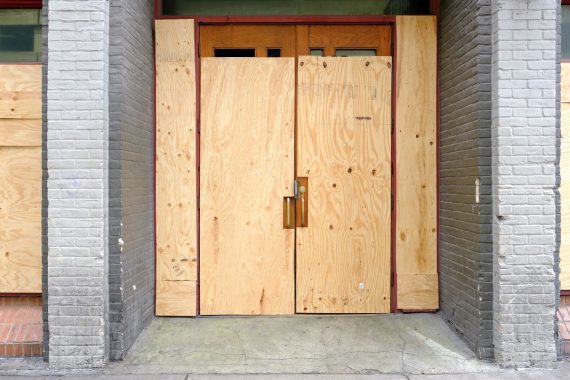Exclusive GP practice closures have totalled almost 800 in the past eight years, forcing an estimated 2.5 million UK patients to move, a Pulse investigation reveals.
It follows another year of large numbers of practices shutting, with 96 closing their doors in 2020, mostly in England.
GP leaders said it was ‘shocking’ that practices had not been given enough support to avoid closure during Covid-19, ‘the biggest health crisis in decades’.
But NHS England said practice closures had ‘stabilised’ in 2020 and that additional NHS funding and the support of primary care networks had helped.
The 2020 data, collected from responses to freedom of information (FOI) requests sent by Pulse to all CCGs and health boards across the UK, represents full practice and branch closures, including from mergers.
In 2013, when Pulse first started looking at the issue, just 18 practices shut their doors.
From then until 2020 a total of 778 surgeries have closed, meaning an estimated 2,494,700 patients have had to attend a different practice.
GPs said the same pressures as in previous years continued to cause closures in 2020, such as recruitment problems, high workload, insufficient premises, or single-handed GPs having no one to take on their contract.
Derby and Derbyshire LMC treasurer Dr Peter Holden said: ‘[There] are problems of succession, premises problems, or situations where a practice might have had too little investment for too long and is no longer viable, lists may be getting small, or people may retire.’
He added: ‘Handing back contracts is a phenomenon of the last five to seven years, and is usually driven by an inability to recruit and the workload issue.
‘Many practices are only two resignations away from collapse. This is what happens when the system is running at capacity all of the time.’
Londonwide LMCs deputy chief executive Dr Lisa Harrod-Rothwell said more should have been done to avoid closures during the pandemic.
She said: ‘The fact any practice has not been given sufficient support to stave off closure during the biggest health crisis in decades is a worrying indictment of how much commissioners and regulators value the role of the GP and the trusted place of the practice in the community.’
She added that practices on the edge of closing need more support, especially during Covid-19, such as ‘addressing unresourced transfers of work from elsewhere in the system’, which ‘would both reduce burnout and release capacity for patient care’.
BMA GP Committee deputy chair Dr Mark Sanford-Wood said: ‘No practice or individual GP wants to hand back their contract meaning patients have to change practice, and they will have made every effort to avoid it, but when demand outstrips capacity, resources and support, it may not viable for them to continue.’
He added: ‘The impact that this has both on patients and practice staff cannot be underestimated, which is why CCGs and NHS England need to provide struggling practices with all the support they need to stop them being forced to close.’
RCGP chair Professor Martin Marshall said closing a practice is a decision that is taken ‘as a last resort’.
He added: ‘This is why the intense resource and workforce pressures facing GPs and our teams need addressing urgently. We need to see initiatives in place to prevent GPs from burning out, as well as further efforts to recruit doctors to the profession and keep existing, experienced GPs on the frontline.’
Commenting on the closures in 2020, an NHS England spokesperson said: ‘This small UK survey shows that – according to Pulse’s own previous claims – the reported reduction in practice numbers has stabilised at the same low percentage as last year, and was far lower than what Pulse claimed happened in 2016, 2017 or 2018.
‘While in some cases surgeries have merged with a nearby practice and in other cases a partner may have retired, it is clear that the allocation of a further £270 million to support practices over the past year has helped, together with support from primary care networks.’
Earlier this year Pulse revealed GPs continue to work 11-hour days on average, dealing with an average of 37 patients in that time – far more than the 28 patients they believe is the safe daily limit in the pandemic.
The snapshot survey of 1,400 UK GPs showed 70% believed their workload in general now was ‘significantly’ (35%) or ‘slightly’ (35%) higher than on a typical day before the pandemic.
It comes as former RCGP chair Professor Dame Clare Gerada told Pulse around a fifth more GPs are presenting to mental health service NHS Practitioner Health during the pandemic compared with the year before.
Last week NHS England’s primary care director acknowledged the workload pressure GPs facing GPs, saying she knows that ‘it’s feeling really difficult at the moment’.


















READERS' COMMENTS [4]
Please note, only GPs are permitted to add comments to articles
There’s little grass left, at the grass root. That leads to flooding.
There just isn’t enough information here to interpret this.
If 800 practices have closed their doors despite partners’ and patients’ best attempts to keep them going then that is a crisis and a tragedy.
If 800 practices have decided that they can best serve their populations by merging then that is neither a good nor a bad thing in itself.
Without knowing how many practices fall into each category, the number of practices “closing or merging” is a meaningless figure.
Need CQCs Professor Steve Field to comment here. The institutes all commended him on his work and organisation. CBE FRCP FFPH FRCGP.
Here is an open letter to him in the BMA in 2015:
https://www.bmj.com/content/351/bmj.h6903/rr-0
This is what the government want.